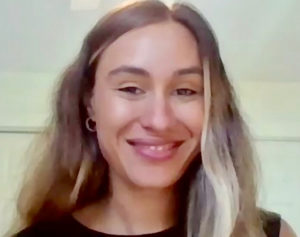
Lack of Medicaid coverage for residents of the U.S. Virgin Islands might mean the difference between life and death, several health officials said Thursday during a webinar on “Medicaid in the U.S. Territories: How Inequitable Funding Exacerbates Health Disparities.”
Even as they talked, the Medicaid program in the Virgin Islands was perched on what they called a cliff.
The federal government had only until midnight Thursday to resolve issues and pass a funding resolution. It did come to an agreement to keep the funding flowing to the Virgin Islands and other territories.
But that resolution is far from solving the territory’s Medicaid problems. It is just a temporary continuation of a temporary fix. The temporary fix was started in 2017, the temporary extension goes only until Dec. 3.
Without the temporary fix, the Virgin Islands gets reimbursed at the same percentage as the states with the lowest poverty rates get. In fact, the Virgin Islands has a higher poverty rate than any state. The poverty rate in the territory is 22 percent while the overall poverty rate in the United States is less than half that. Louisiana and Mississippi are the only states that come close to the Virgin Islands with poverty rates, with each at 19 percent.
Medicaid is a program of medical aid designed for those unable to afford regular medical service. It is financed primarily with federal money but requires matching funds from the state or territory. States can get unlimited funds, but there is a cap on funds a territory can get.
Taylor Hall of the American Cancer Society, a sponsor of the webinar, said Medicaid can mean the difference between life and death for individuals facing a cancer diagnosis without other coverage. Individuals without access to health insurance are more likely than those with insurance to be diagnosed with cancer at a later stage when the disease is more costly to treat and survival is less likely.
V.I. Health Commissioner Justa Encarnacion appeared in the video portion of the webinar, saying that providing health care in the territory is challenging because of damaged infrastructure and because the islands do not have healthcare providers who can compete with stateside care.
Patsy Daniels, a cancer survivor and resident of St. Croix, testified about her experience. She said she had to go to Georgia for treatment and, though the care was good, she felt “out of place and uncomfortable.”
She said her feelings lead to complications – seizures and panic attacks.
Representatives from Puerto Rico were also involved in the webinar. Puerto Rico is reimbursed with the same matching fund percentage as the Virgin Islands even though its poverty rate is twice as high, with more than 40 percent of its residents living in poverty.
Roberto García-Rodríguez, representing the Puerto Rico affiliate of Blue Cross, said Medicaid does not support as many medical procedures in Puerto Rico as it does in the states. He said Medicaid support in Puerto Rico is also lacking for medical transportation and diabetic materials.
Hall said the territories often can’t even draw down reimbursements because they lack matching funds.
The word unpredictability came up a lot while discussing funding during the webinar.
García-Rodríguez said that more than 2,000 medical professionals have left Puerto Rico in recent years. The professionals are never sure whether Medicaid is going to pay or not, he said.
Encarnacion said, “We must be treated as equals.”
After the House passed its continuing resolution, keeping the system intact, warts and all, for another two months, Delegate Stacey E. Plaskett said in a statement that the temporary change in the federal match for Medicaid, along with raising the amount paid by Medicaid engineered by her office in 2017, has allowed 20,000 additional Virgin Islanders to enroll in Medicaid.
The American Cancer Society Cancer Action Network hosted the seminar.


